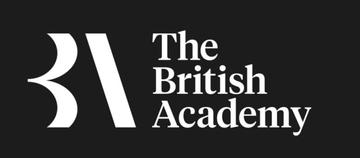Seven academics named as Fellows of the British Academy

Seven academics in the Humanities have been named Fellows of the British Academy.
This is a significant proportion of 52 new Fellows announced this week. Three academics in Social Sciences at Oxford were also named as Fellows.
Professor Karen O’Brien, Head of Humanities, paid tribute to the new Fellows. ‘I am delighted that so many of our academics have received the prestigious honour of being named Fellows of the British Academy,' she said.
'They have made outstanding contributions to their fields, and their research shows the breadth and strength of research across the Humanities at Oxford.'
The new Fellows in Oxford Humanities are:
Rosalind (Polly) O’Hanlon, who is Professor of Indian History and Culture in the Faculty of Oriental Studies. Her work focuses on the early modern and colonial history of India. She said: 'In these most difficult days for scholars and researchers everywhere, it is wonderful to be able to celebrate this honour. Having myself benefited from the comprehensive support the Academy offers to scholars at every stage of their careers, I am immensely grateful now for this opportunity to contribute to its work. The Academy already offers brilliant support for interdisciplinary projects. But, for scholars of the post-colonial world in particular, the Academy's developing programme of visiting fellowships and scholar exchanges gives us tremendous opportunities to build solid research links with colleagues in the countries that we study, colleagues who are in many cases also facing grave political as well as epidemiological challenges.’
Rosalind Thomas, Professor of Ancient Greek History, who has done pioneering work on ancient Greek literacy and the interaction of the written word with orality and oral tradition. She said: 'I am delighted and honoured to be elected to the British Academy. The value of the humanities alongside that of the sciences has seldom been clearer than during this current period of lockdown, malaise and uncertainty.’
Ursula Coope, Professor of Ancient Philosophy. She has written articles on Aristotle's accounts of change, agency and the infinite, and on ancient discussions of the importance of thinking for oneself. Professor Coope said: ’I am delighted to have been elected to an institution dedicated to fostering scholarship in the humanities and social sciences. I am honoured to take my place alongside so other distinguished academics, and welcome the opportunity to participate in the British Academy's important work.’
Andreas Willi, Diebold Professor of Comparative Philology in the Faculties of Classics and of Linguistics, Philology and Phonetics. He is a comparative linguist, specialising in the grammar and history of the ancient Indo-European languages and of Ancient Greek and Latin, in particular. Professor Willi said: ‘Much of the fascination of studying ancient or modern languages lies in the fact that each of them makes you discover a new way of looking at the world. To be able to do so professionally is an incredible privilege in itself. Becoming a fellow of the British Academy, while enjoying this privilege is not only a huge honour, but also an encouragement to try to make others discover this richness for themselves: we must never forget that listening to the voices of other cultures on their own terms is something that is both fair and deeply enjoyable.’
Paul Fiddes, Professor of Systematic Theology, whose prolific published work has connected theology with creative literature, late-modern philosophy, other world religions and the life of Christian congregations across the whole ecumenical spectrum. He said: ‘It is a very great honour and a delight to be elected a fellow of the British Academy. I look forward to the new opportunities the fellowship offers for putting theology into inter-disciplinary conversations, and hope to play some part in the encouragement of younger scholars for which the Academy is rightly renowned.’
Anna Sapir Abulafia, Professor of the Study of the Abrahamic Religions and an international authority on the Christian-Jewish debate. She has published widely on interactions between Christians and Jews in the Middle Ages, within the broad context of 12th and 13th century theological and ecclesiastical developments. At present, the focus of her research is on the place of Jews and Muslims in canon law. Professor Abulafia said: ‘I feel deeply honoured by my election. I am particularly pleased that I can bring the study of Christian-Jewish relations in the Middle Ages to the Academy.’
Colin Burrow, Professor of English and Comparative Literature. He works mainly on relationships between English and classical literatures. He recently published Imitating Authors: Plato to Futurity (OUP, 2019), which is about the theory and practice of how writers (and, latterly, computers) learn from and imitate other authors. He said: ‘I hope that the fellowship will enable me to help bring about a higher level of public engagement in literature in general and poetry in particular.’


